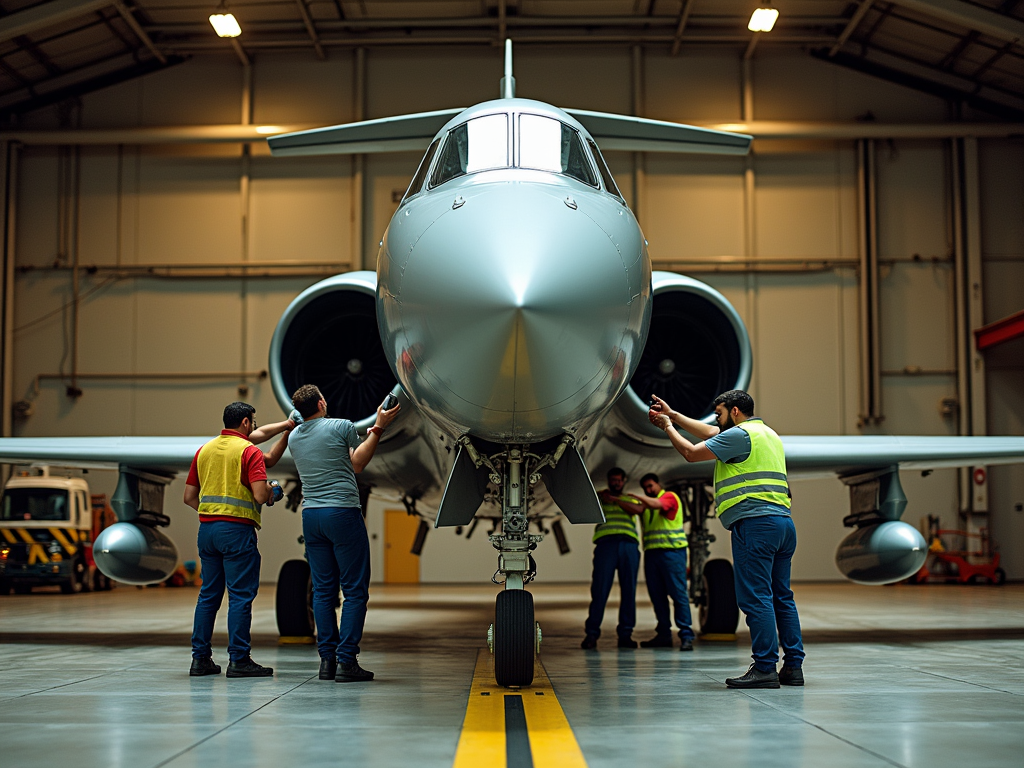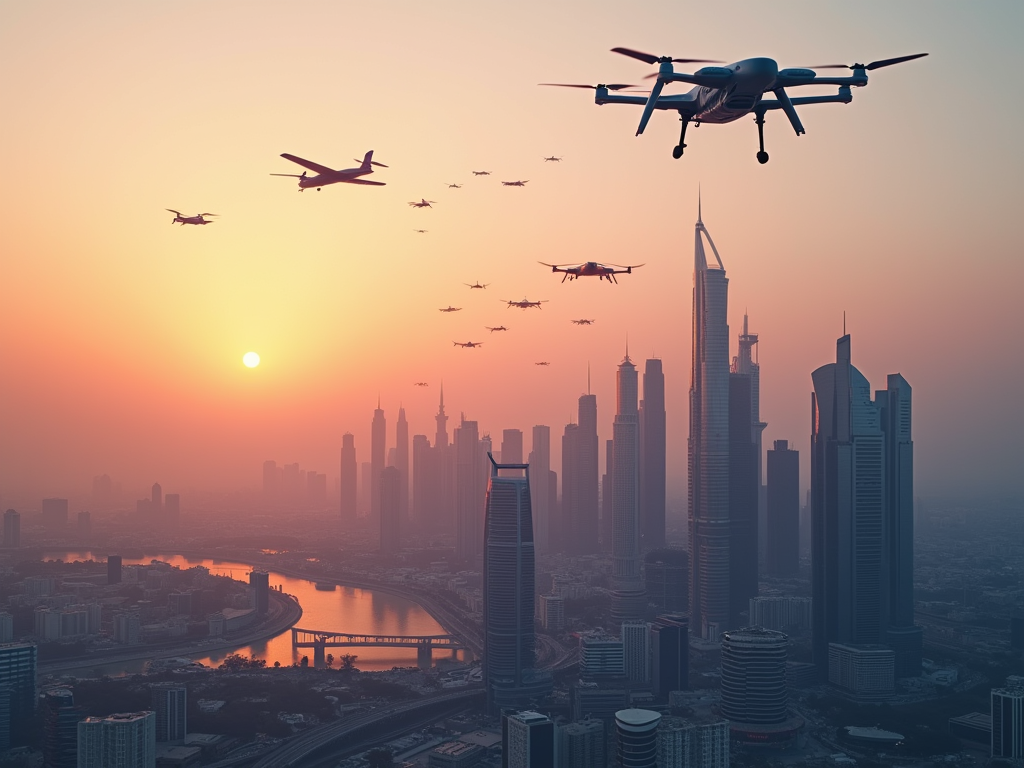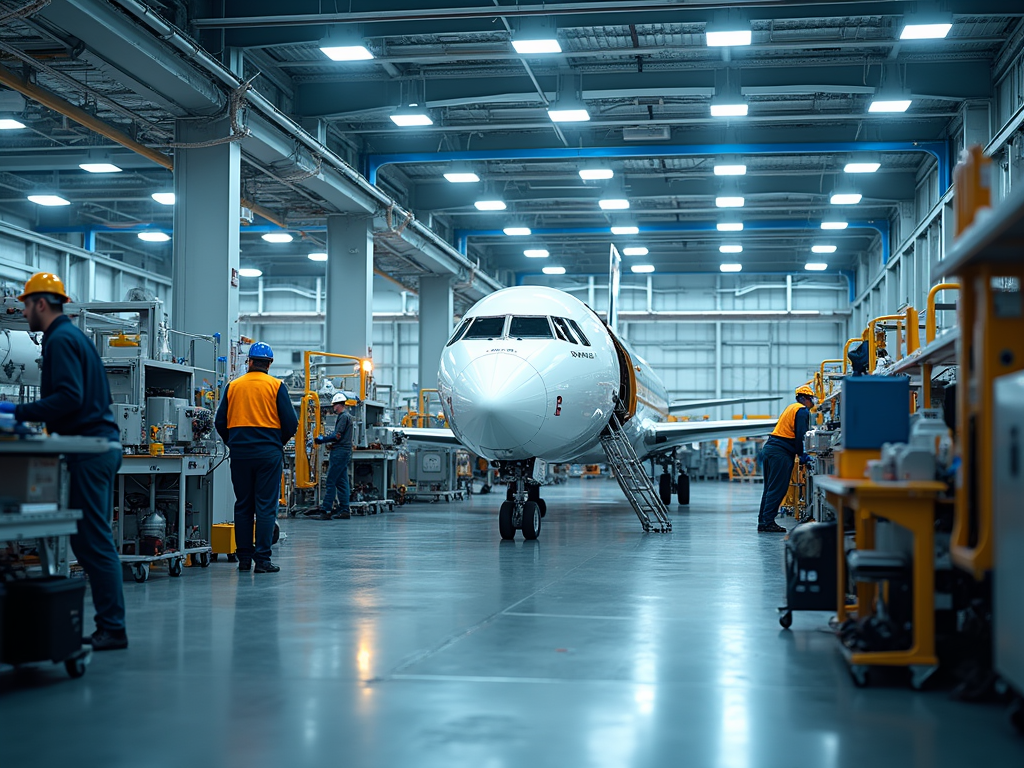Dubai’s aerospace sector stands as a beacon of innovation and investment potential, attracting global attention. With its strategic location, robust infrastructure, and government support, the city is poised to become a central hub for aerospace companies. This article delves into the myriad investment opportunities within Dubai’s aerospace sector, showcasing its growth potential, government initiatives, and various pathways for investment.
Overview of Dubai’s Aerospace Industry

The aerospace industry in Dubai is rapidly expanding, motivated by regional demand and the emirate’s vision for economic diversification. Dubai is home to several key players in the aerospace field, including manufacturers, service providers, and airline operators. The industry is not only significant for its current contributions to GDP but also for its projected growth trajectory, driven by a burgeoning middle class in the region and increasing air traffic. Recently, Dubai has launched ambitious plans to increase aircraft manufacturing capabilities, enhance maintenance, repair, and overhaul (MRO) services, and promote research and development initiatives.
Examples of major aerospace initiatives in Dubai include:
- The Dubai Aerospace Enterprise (DAE), which aims to be a global leader in aerospace services.
- The establishment of the Mohammed bin Rashid Space Centre, underscoring the emphasis on space exploration.
- The expansion of Dubai International Airport, enhancing its status as a global aviation hub.
Key Areas for Investment in Dubai’s Aerospace Sector

Investors looking to enter Dubai’s aerospace sector can explore several key areas that promise robust returns and growth potential. Each area presents unique opportunities, driven by various market demands and technological advancements.
1. Manufacturing and Production
The manufacturing segment of Dubai’s aerospace industry is booming, with an increasing number of companies setting up production facilities. The emirate is incentivizing local manufacturing to reduce dependence on imports and stimulate the economy. Investors can tap into avenues such as:
- Aerospace components manufacturing, including engines and avionics.
- Additive manufacturing (3D printing) for aerospace parts.
- Advanced materials development specialized for aircraft durability and efficiency.
2. Maintenance, Repair, and Overhaul (MRO) Services
The MRO sector in Dubai is expanding exponentially, fueled by the growing fleet of aircraft in the region and the high demand for timely maintenance services. Opportunities in this area include:
- Setting up MRO facilities to cater to regional and international airlines.
- Providing specialized training and certification services for MRO technicians.
- Utilizing cutting-edge technology for predictive maintenance solutions.
Government Support and Initiatives
The Dubai government plays a pivotal role in fostering a conducive environment for aerospace investments. Several initiatives have been launched to support growth in this sector, offering incentives to both local and international investors. The key government initiatives include:
- The Dubai Industrial Strategy 2030, which aims to enhance manufacturing capabilities.
- Tax incentives and free zones that facilitate ease of doing business.
- Collaboration with international aerospace firms to bolster local expertise and standards.
These efforts not only showcase the government’s commitment to developing the aerospace sector but also serve to attract foreign direct investment, providing a significant edge for new and existing businesses.
Challenges and Considerations for Investors
While Dubai offers exciting investment prospects in its aerospace sector, investors should also be mindful of the challenges. The competitive landscape requires thorough market research and strategic planning. Key challenges include:
- Obtaining necessary regulatory approvals and licenses.
- Navigating the complexities of supply chain logistics.
- Understanding regional market dynamics and consumer behaviors.
Investors must conduct risk assessments and collaborate with local partners who possess in-depth market knowledge to mitigate these challenges effectively.
Conclusion
Dubai’s aerospace sector represents a promising frontier for investment, fueled by a combination of favorable government policies, strategic location, and a rapidly growing regional demand for air travel and aerospace services. With opportunities in manufacturing, MRO services, and active government support, the emirate stands out as an attractive destination for investors looking to capitalize on the aerospace industry’s growth. Those prepared to navigate the landscape’s challenges can find rewarding prospects that will contribute not just to their own success, but also to the region’s economic advancement.
Frequently Asked Questions
1. What are the primary sectors for investment in Dubai’s aerospace industry?
The primary sectors include manufacturing and production, maintenance, repair, and overhaul (MRO) services, and aerospace technology development.
2. How does the Dubai government support aerospace investments?
The Dubai government supports investments through incentives such as tax breaks, free zones, and infrastructure development as part of the Dubai Industrial Strategy 2030.
3. What challenges should investors consider before entering the aerospace sector in Dubai?
Investors should be mindful of regulatory complexities, supply chain logistics, and the need to understand local market dynamics.
4. Is there a growing demand for aerospace services in the region?
Yes, the increasing fleet of aircraft and rising air travel demand in the Middle East and surrounding regions is driving significant growth in aerospace services.
5. Can foreign investors participate in Dubai’s aerospace market?
Yes, Dubai actively encourages foreign direct investment in its aerospace sector, providing various incentives and support structures to facilitate entry.
